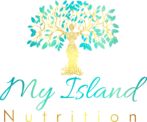Long before people were running on Dunkin, coffee was already cemented in the lives of many worldwide irrespective of race, gender, or religion. It has arguably been a household name for centuries dating back to the 15th century when it first started to emerge from the Arabian Peninsula. When coffee arrived in Europe and rose to the ranks of popularity, local clergymen started to condemn this mysterious beverage, calling it the “bitter invention of Satan.” How they did they come to that conclusion? Well, I am not quite sure. However, those controversial assertions were no more than a speed bump in the coffee-volution. Viva la Coffee I say! Even Pope Clement VIII was easily smitten by the beverage’s instant pleasure properties once he pursed his lips and took a sip. Coffee houses started to pop up in major cities all over England, Austria, Germany, France, and Holland. Before long, this single bean not only stimulated the mind and possibly endless conversation, but business as well. Publicly traded companies like Starbucks and Dunkin Donuts should raise a mug to the bean to thank for all their undivided success.
There is so much more though to this bean than its ability to quickly turn your mood around. With more than 800 volatile compounds, this powerful dark elixir of a beverage has started to receive unbridled enthusiasm from the health community. Several epidemiological studies have suggested that coffee may actually prevent several chronic diseases like type 2 diabetes and liver disease. And just recently, a metanalysis review from the Journal of Renal Nutrition looked at twelve studies and found that coffee may actually be good for your kidneys. Over 505,000 participants were included in this broad analysis. After looking at several past studies, researchers determined that coffee consumption may be actually be associated with a reduced incidence of chronic kidney disease (CKD). In fact, the greatest reduction was found in those who consume greater than 1 cup daily. Now, I am not saying to throw in more espresso or cap on that extra refill at your local Starbucks. Coffee does contain caffeine, which has a half-life of a whopping 6 hours meaning that it takes a while to breakdown in your blood and could potentially affect your sleep cycle if you are not careful. So please drink responsibly! With that being said, the data is promising especially considering the previous associated health benefits just by sipping on a cup of coffee.
- Kanbay M, Siriopol D, Copur S, et al. Effect of Coffee Consumption on Renal Outcome: A Systematic Review and Meta-Analysis of Clinical Studies. Journal of Renal Nutrition. 2021;31(1):5-20. doi:10.1053/j.jrn.2020.08.004
- Nieber K. The Impact of Coffee on Health. Planta medica. 2017;83(16):1256-1263. doi:10.1055/s-0043-115007

